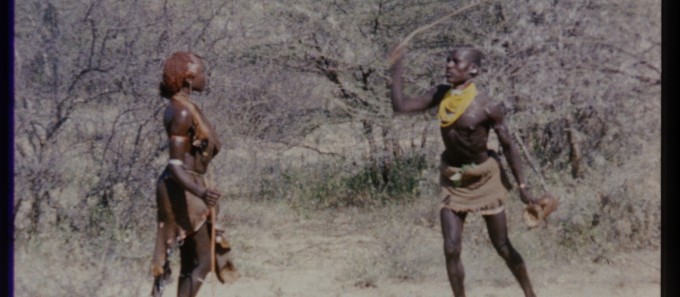- When:
- Friday, October 22, 2010, 9:00pm - 9:00pm
- Description:
-
Introduction by Artemis Willis, Ph.D. candidate, Department of Cinema & Media Studies.
Here Gardner focused on the Hamar, a people dwelling in the thorny scrubland of southwestern Ethiopia, about 100 miles north of Lake Rudolph, Africa's great inland sea. Their geographical isolation fostered a highly traditional way of life, which, Gardner found, exemplified the worst in male behavior with regard to women—an open, even flamboyant, observance of male supremacy wherein Hamar men are masters and the women are slaves.
(1974, 35mm, color, 85 min)
Robert Gardner’s vision—situated in a sometimes uneasy place between ethnographic and artistic traditions—has made him one of the most original, as well as controversial, filmmakers of the last half century. Deeply admired by filmmakers including Stan Brakhage (who looked forward to the “future recognition of Gardner’s genius” as an artist), Gardner has been condemned by anthropologists and others who criticized Dead Birds for a lack of scientific documentation and declared Forest of Bliss ignorant to the point of incomprehensibility. However, as Brakhage asserts in Telling Time (2003), the question of whether Gardner is “An Artist, an Anthropologist, or WHAT?” is “SUCH a boring question once one has fully experienced his films.” In the 21st century, what endures is the distinctly lyrical style and arresting cinematography Gardner brought to his enigmatic portrayals of disappearing cultures. These are powerful poetic reflections on human experience which warrant new and renewed consideration.
This series is concurrent with the autumn release of Just Representations, an edited collection of Gardner’s writing.
Rivers of Sand

<em>Rivers of Sand</em>, 1974